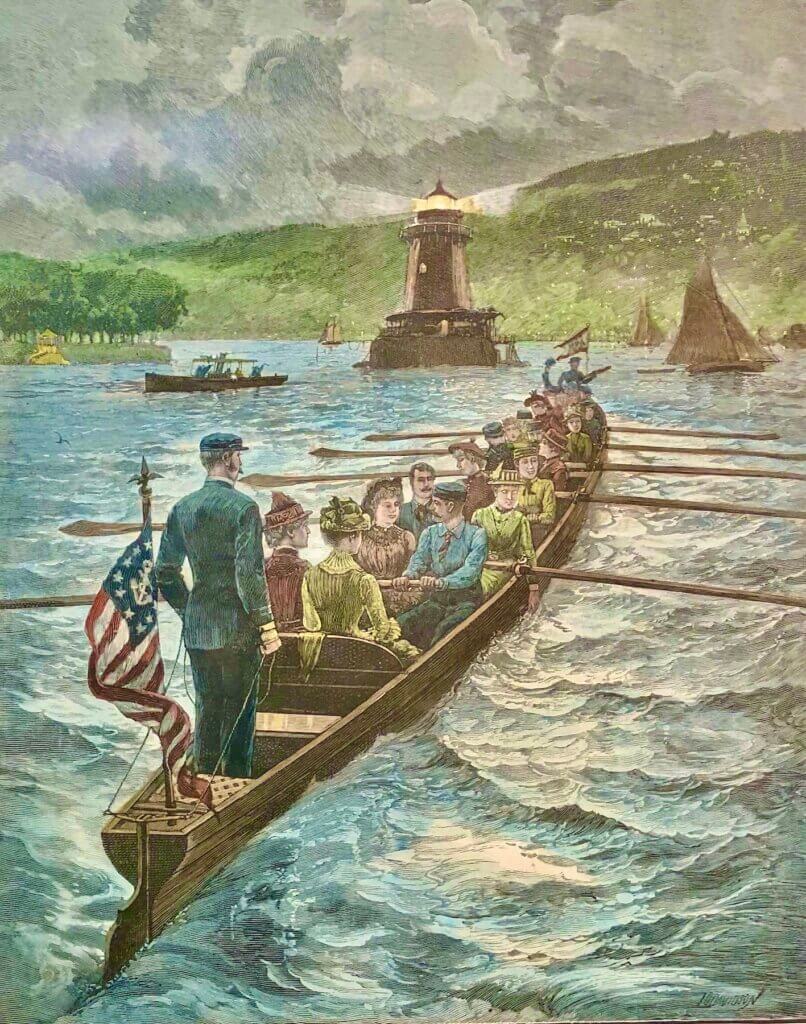
In Julian Davidson’s 1889 wood engraving, a ten-oar barge carrying formally dressed couples rides perilously low in the moonlit Tappan Zee chop as it heads toward a beaming Tarrytown lighthouse. The scene is both realistic and dreamy. Wouldn’t the helmsman standing aft lose his balance? Wouldn’t the women’s hats blow away? How could they possibly be rowing from Nyack to Tarrytown at night in such a small craft? Yet Davidson, an expert rower and keen observer of marine events, provides an accurate depiction of an actual experience. His romantic realism, a hallmark of the Hudson River School, also defines his works portraying the Tappan Zee, Hook Mountain, and the village of Nyack.
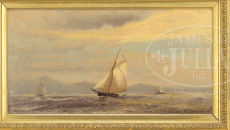
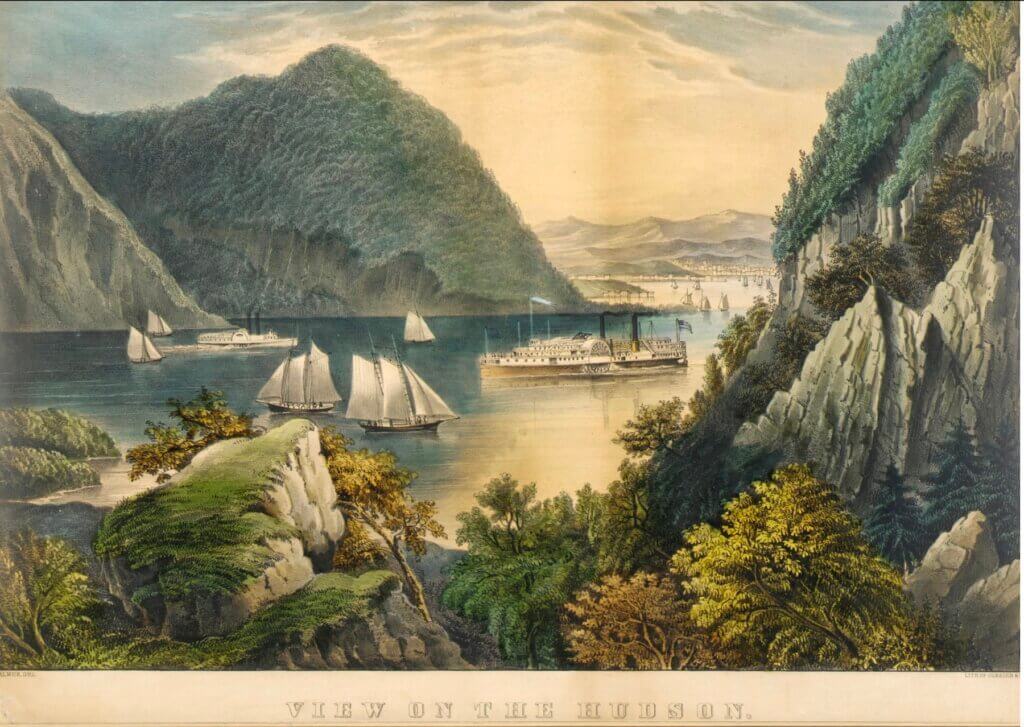
Comparison of Davidson’s style with that of a typical Hudson River School landscape painting.
By studying his seven known Tappan Zee works, we gain insight into a skilled genre painter who built a reputation for depicting marine battle scenes. Through his art, we also glimpse the dramatic essence of the Gilded Age as it unfolded in Nyack-on-the-Hudson.
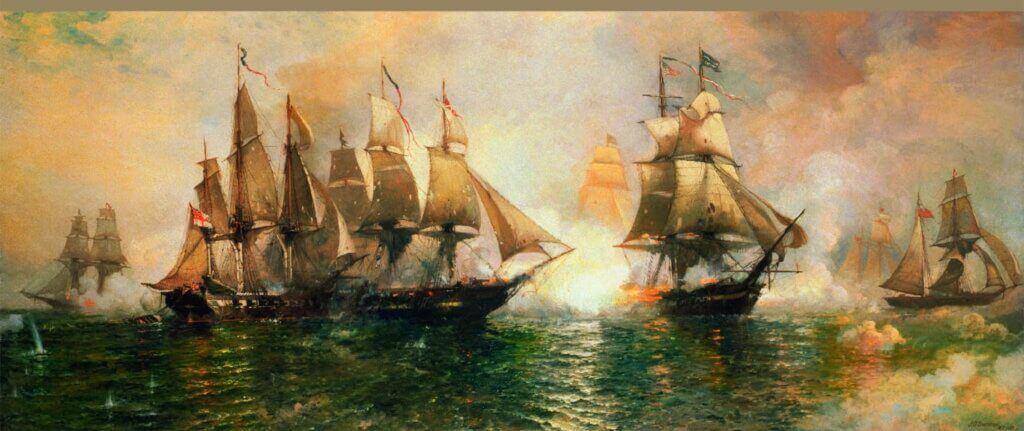
A Young Artist Finds His Way to Nyack
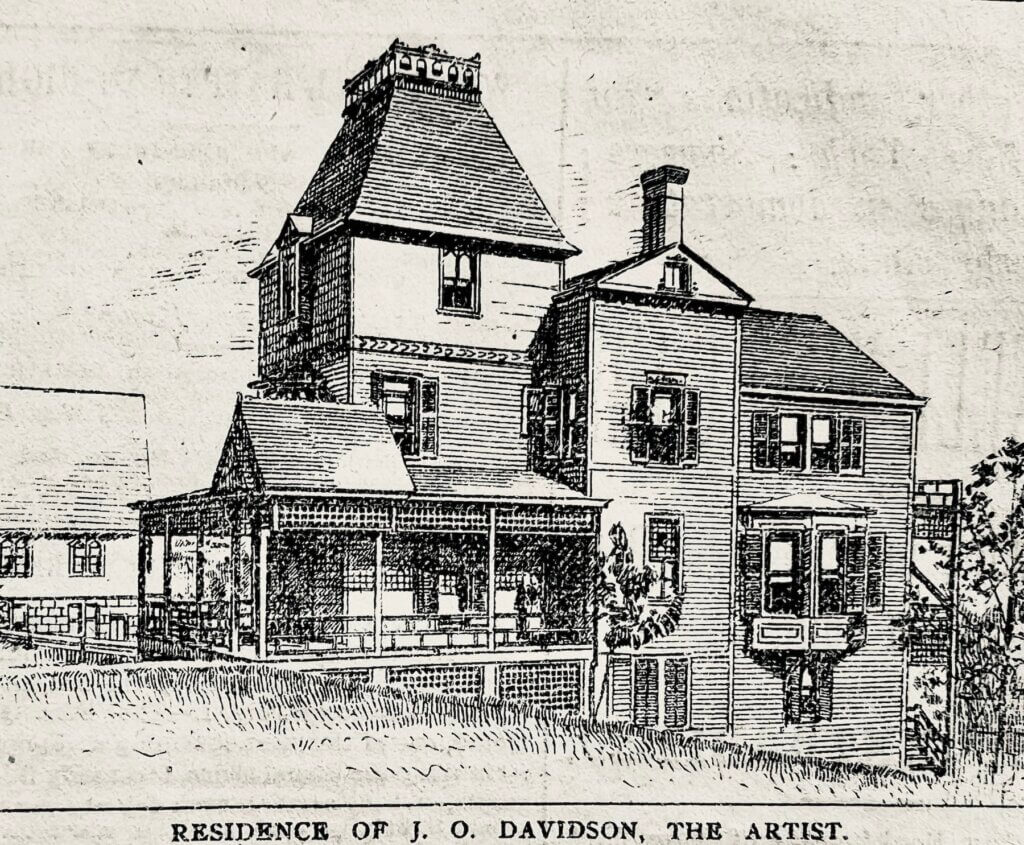
Born in 1853, Davidson, the son of a successful civil engineer, experienced the sea firsthand as a child, voyaging with his father to Cuba and down the Mississippi River. At military school in Connecticut, he joined the rowing team. Summers found him working as a draftsman in his father’s New York City office, but much of his time was spent observing and sketching ships in New York Harbor. In 1871, at just 17, he ran away to sea, signing on as a crew member of the Arizona for an around-the-world journey.
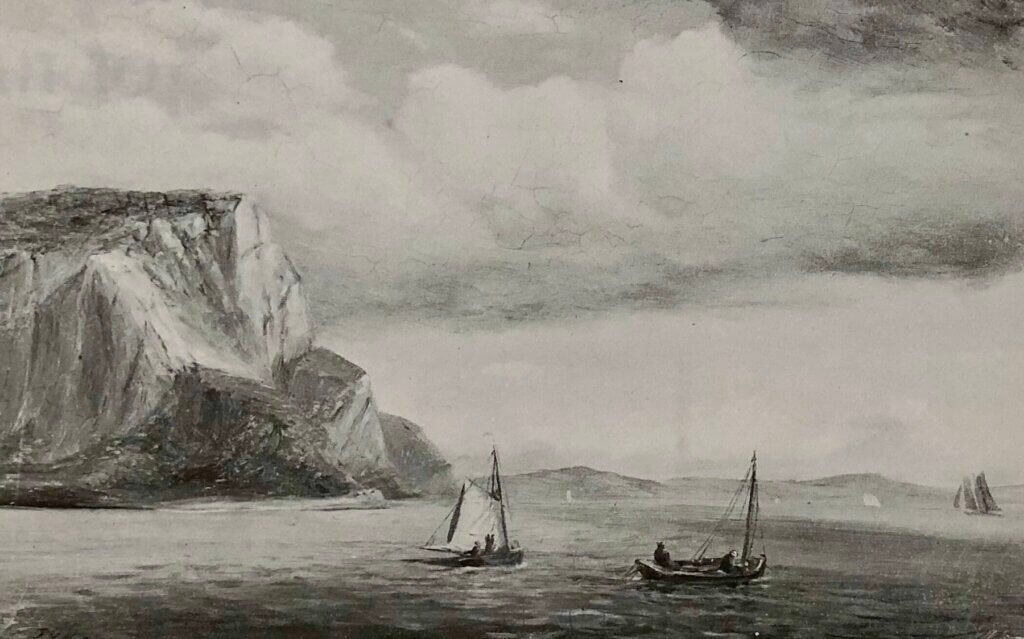
Davidson began visiting the Nyacks in 1871, completing two oil paintings featuring the Tappan Zee and Hook Mountain. His first, On the Hudson, has an unfinished quality, possibly serving as a working draft. Notably, it captures Hook Mountain before quarrying transformed its landscape. The Hudson River from the Tappan Zee, now in the Hudson River Museum’s collection, offers a water-level perspective of the bustling Tappan Zee. Created at age 18, the painting reveals Davidson’s talent, even if his brushwork lacked the refinement of Hudson River School masters like Frederic Church.
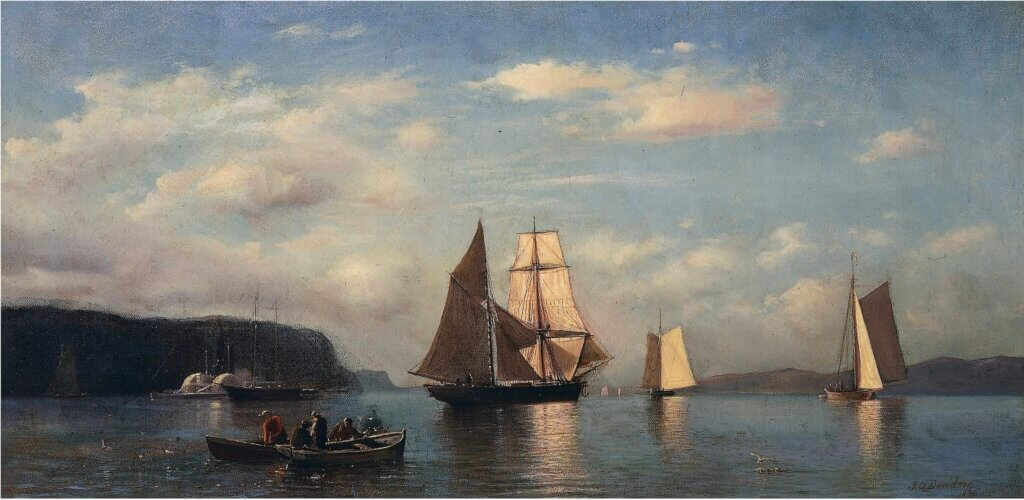
Marriage and Life in Nyack
By 1876, Davidson spent most summers in Nyack, where he met the Merritt family. He formed a lifelong friendship with Arthur Merritt, a dedicated rower, and in 1877 married Arthur’s sister, Cornelia. The couple had a son in 1880, who sadly died at two months old.

In 1885, the Davidsons built a French chateau-style home at 117 South Broadway, which still stands today, largely unchanged from early engravings. From its heights, Davidson enjoyed a sweeping view of the river. Around the same time, he acquired a small steam-powered launch, Princess, which he docked in Nyack and used for sketching trips. His unique water-level perspectives owe much to this vessel.
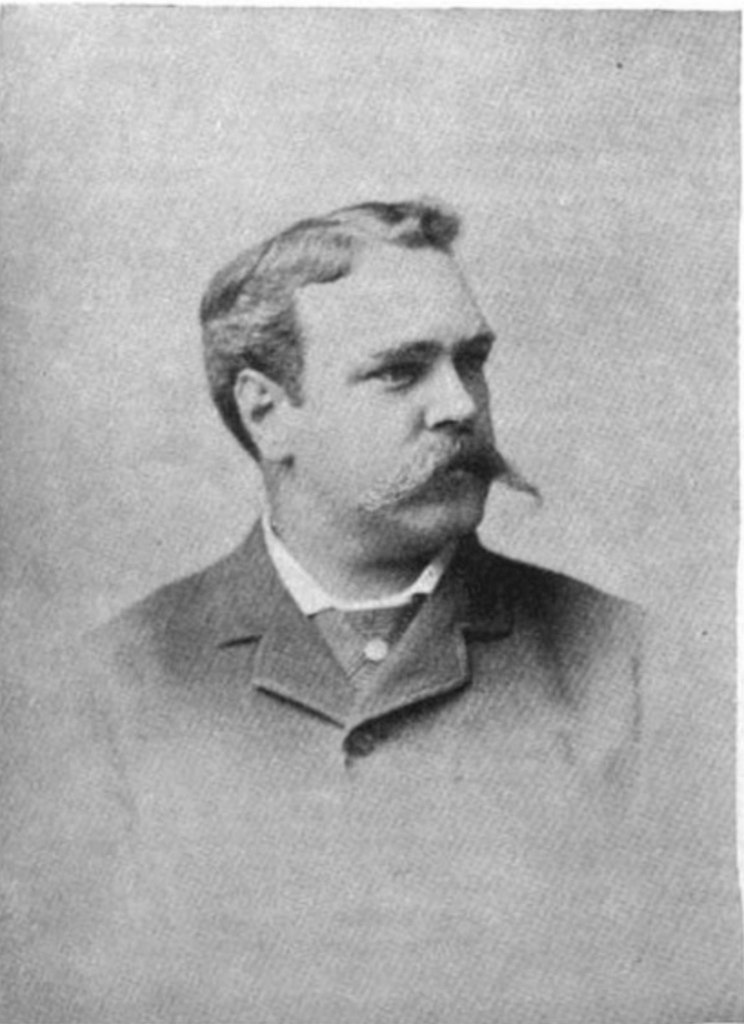
Founding the Nyack Rowing Association
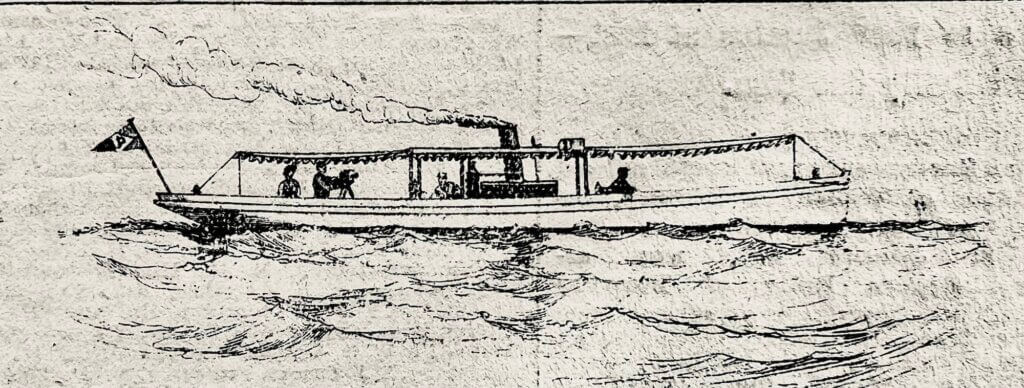
As passionate rowers, Arthur Merritt and Julian Davidson played key roles in founding the Nyack Rowing Association in 1881. The club raised $8,000 to construct a grand three-story Victorian clubhouse on piers beside the Nyack Ferry building at the foot of Spear Street.
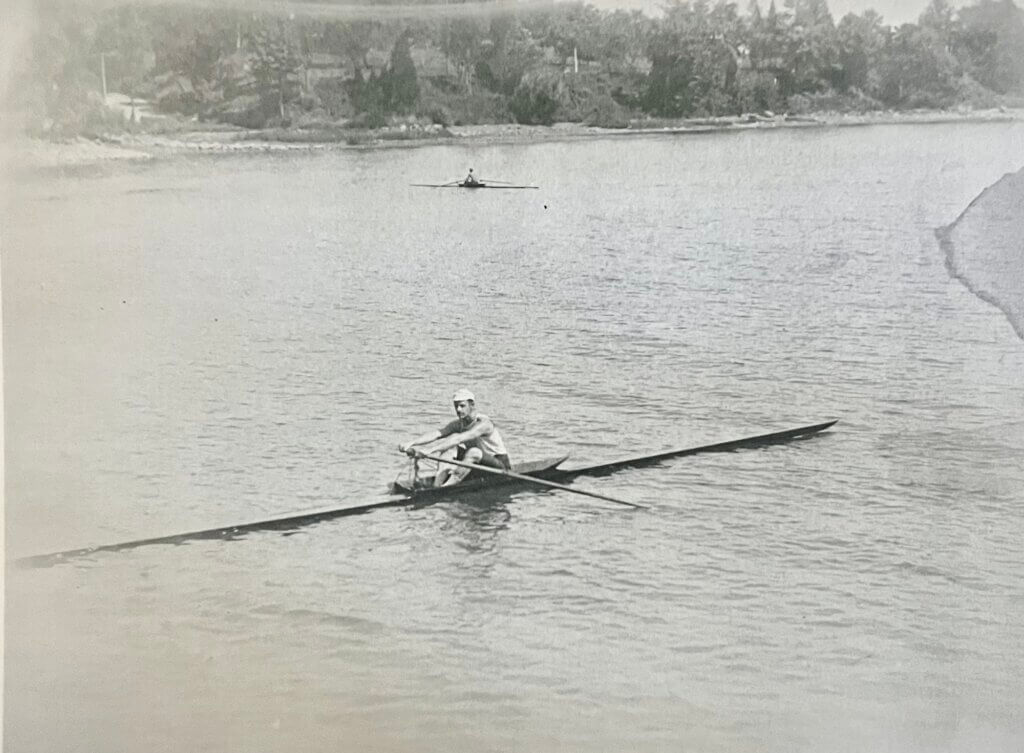
Davidson’s 1882 engraving, New Boathouse of the Nyack Rowing Association, published in Harper’s Weekly, captures the structure in all its glory. Flags and banners flutter in the wind. Crowds line the wraparound second-floor balcony, and the Princess appears in the foreground alongside a scull and small sailboats.
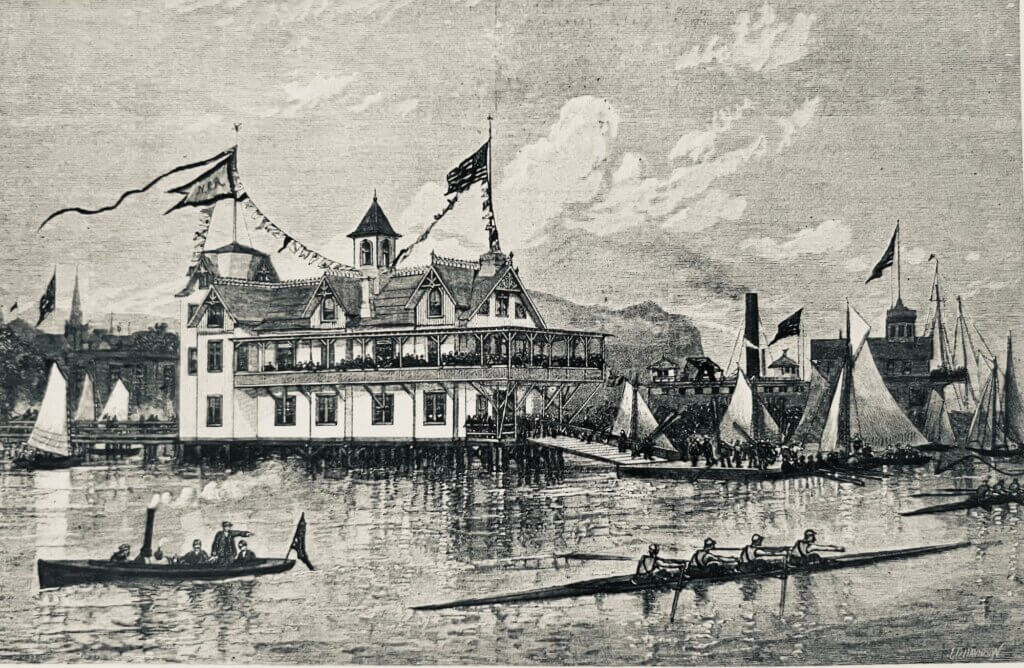
The clubhouse was a true “man cave” for its men-only club members. Wives and girlfriends were allowed in only on Tuesdays after 10:00 a.m. The first floor stored boats and oars, the second housed a ballroom with electric lighting, the third contained dressing rooms, and the fourth-floor tower held a prized billiard table. Later, a single-story dockside building was added for a bowling alley.
Ice Yachting on the Hudson
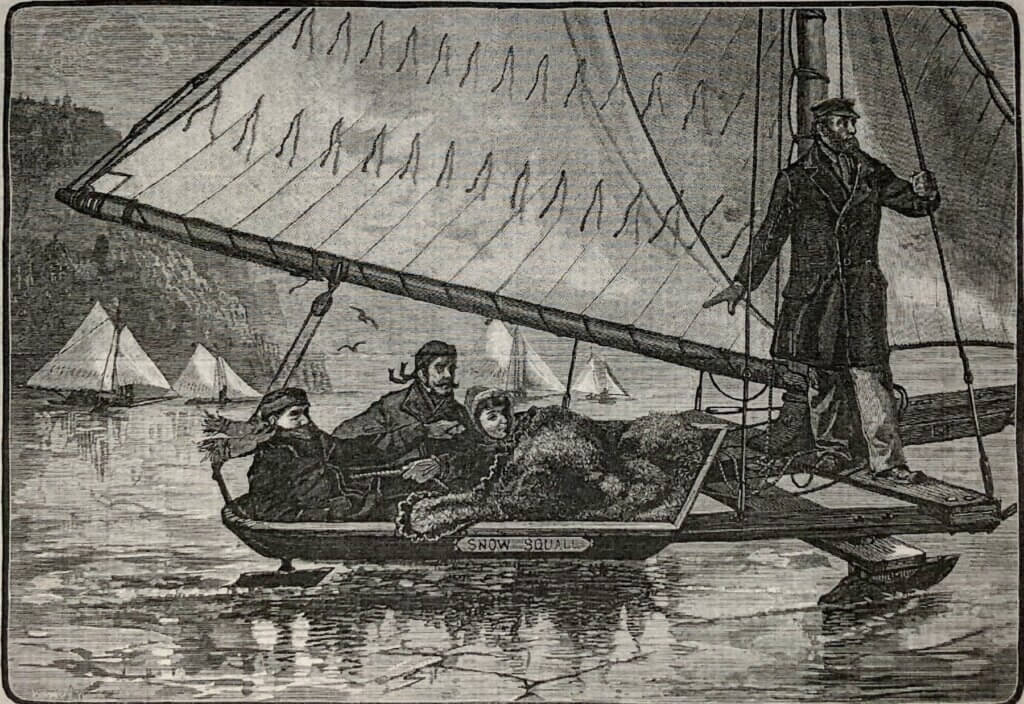
Davidson must have spent some winters in Nyack, as evidenced by his 1879 Harper’s Weekly engraving, Ice Yachting on the Hudson. The scene depicts numerous ice yachts racing across smooth ice with Hook Mountain looming in the background. Ice yachting was immensely popular when the Hudson froze solid. The presence of multiple yachts suggests a race was either underway or imminent.

The Moonlit Barge Party
The Nyack Rowing Association was famous for its moonlit barge parties, often featuring women as passengers. The barge, a flat-bottom boat, was rowed by club members, and Davidson frequently participated. His 1889 Harper’s Weekly engraving, Barge Party on the Tappan Zee by Moonlight, offers a vivid depiction of these festive outings. The Tarrytown lighthouse casts beams through swirling clouds, and the moonlight dapples the water. The mustachioed helmsman bears a striking resemblance to Davidson himself. Each oarsman rows beside a woman, two additional women sit together, and one trails her hand in the water. The N.R.A. pennant flies proudly at the bow. Davidson masterfully captures an ephemeral moment.

Sailing on the Tappan Zee
Davidson’s 1887 painting A Breezy Day, Tarrytown Bay was exhibited at the National Academy of Design in New York City alongside works by renowned artists such as Winslow Homer. The scene showcases a large sailboat leaning into the wind, with whitecaps dancing on the river. Under a cloudy sky, the Tarrytown lighthouse and distant hills form the horizon. The painting now hangs in the Nyack Library’s Carnegie-Farian Room.
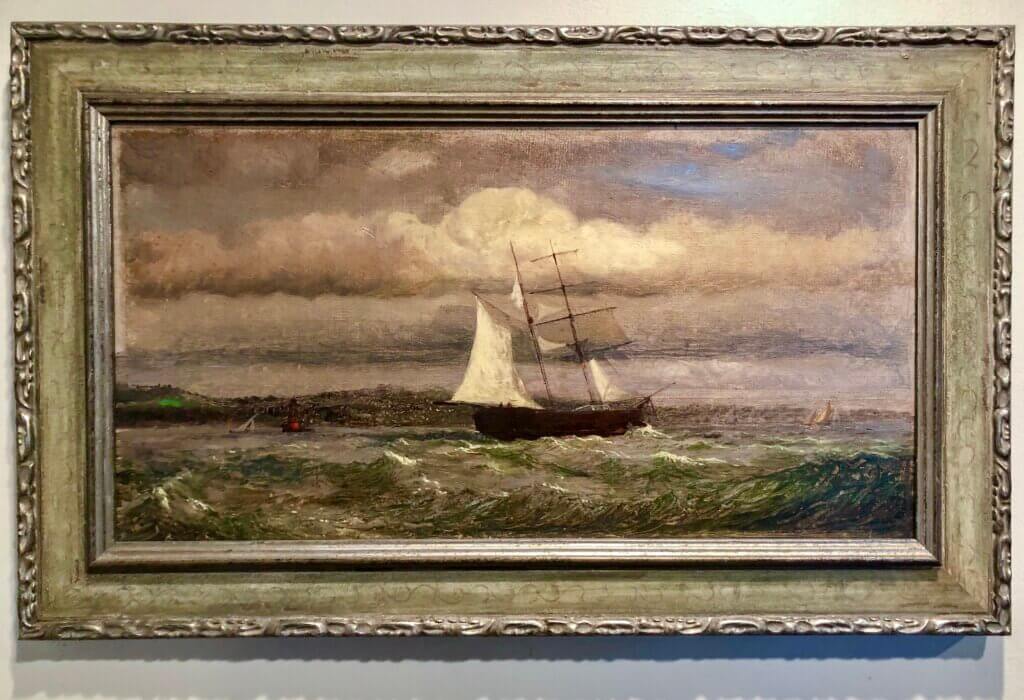
Tarrytown Light
Davidson’s last known Tappan Zee work, the 1888 engraving Light House, Tappan Zee—A Present for the Keeper, revisits one of his favorite subjects: the Tarrytown lighthouse. Built in 1883, it was the only Hudson River lighthouse with living quarters inside rather than in an adjacent structure. Davidson likely knew the Ackerman family, who resided there. With his mastery of light and drama, he depicts a moment in which one man passes a basket to the lighthouse keeper via a long pole. Throughout his Tappan Zee series, Davidson captures the full spectrum of life on the Hudson, from the serenity of the Barge Party to the turbulent, wind-whipped waves in Light House.
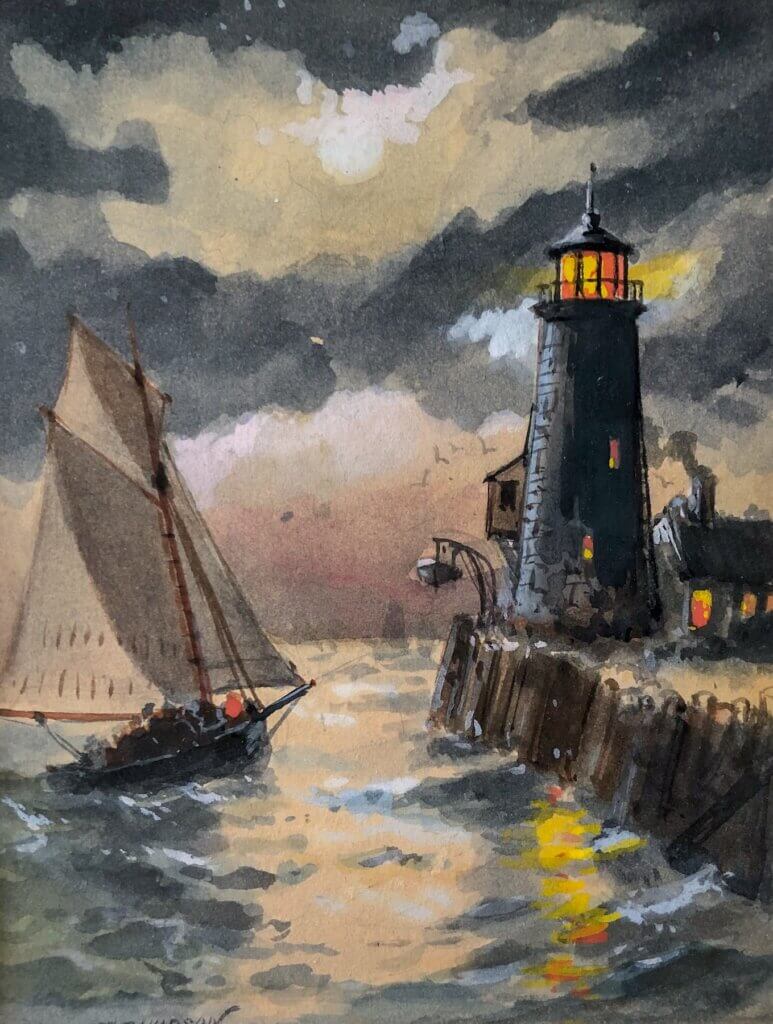
The End of a Career
Tragically, Davidson developed a strep infection that led to Bright’s disease, a form of nephritis. Despite his illness, he continued painting at his Nyack home until his death on April 30, 1894, at just 41 years old. A year later, his wife, Cornelia, suffered a fatal stroke. Creditors swiftly forced an estate auction in Nyack. Approximately 100 works were cataloged, including non-marine subjects, but only a handful remain known today.
Davidson’s legacy faded quickly as Impressionism replaced the Hudson River School’s romanticism. However, A Breezy Day stands as a bridge between these styles, with its dramatic subject matter echoing the Hudson River School and its bold brushwork hinting at post-impressionism.
What Davidson might have created in the 20th century remains unknown. What is certain is that his early death deprived Nyack of a talented artist and a vibrant community figure.
An earlier version of this article appeared in the Spring/Summer 2019 edition of the Historical Society of the Nyacks Newsletter, Volume 14, Number One.
Mike Hays lived in the Nyacks for 38-years. He worked for McGraw-Hill Education in New York City for many years. Hays serves as President of the Historical Society of the Nyacks, Vice-President of the Edward Hopper House Museum & Study Center, and Upper Nyack Historian. . Married to Bernie Richey, he enjoys cycling and winters in Florida. You can follow him on Instagram as UpperNyackMike.
Editor’s note: This article is sponsored by Sun River Health and Ellis Sotheby’s International Realty. Sun River Health is a network of 43 Federally Qualified Health Centers (FQHCs) providing primary, dental, pediatric, OB-GYN, and behavioral health care to over 245,000 patients annually. Ellis Sotheby’s International Realty is the lower Hudson Valley’s Leader in Luxury. Located in the charming Hudson River village of Nyack, approximately 22 miles from New York City. Our agents are passionate about listing and selling extraordinary properties in the Lower Hudson Valley, including Rockland and Orange Counties, New York.









